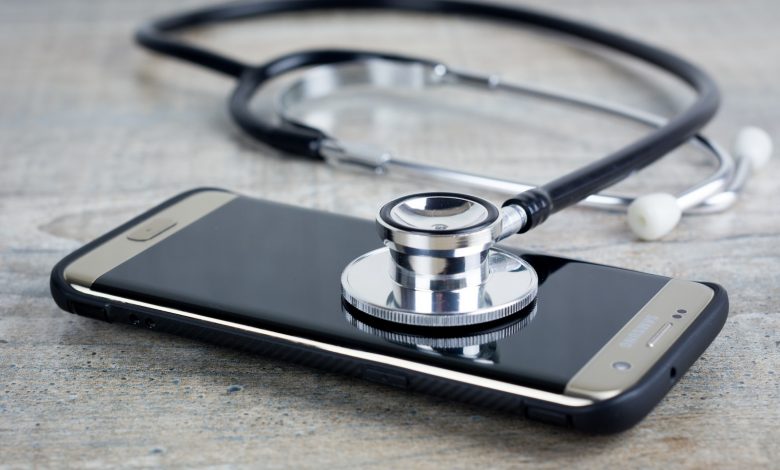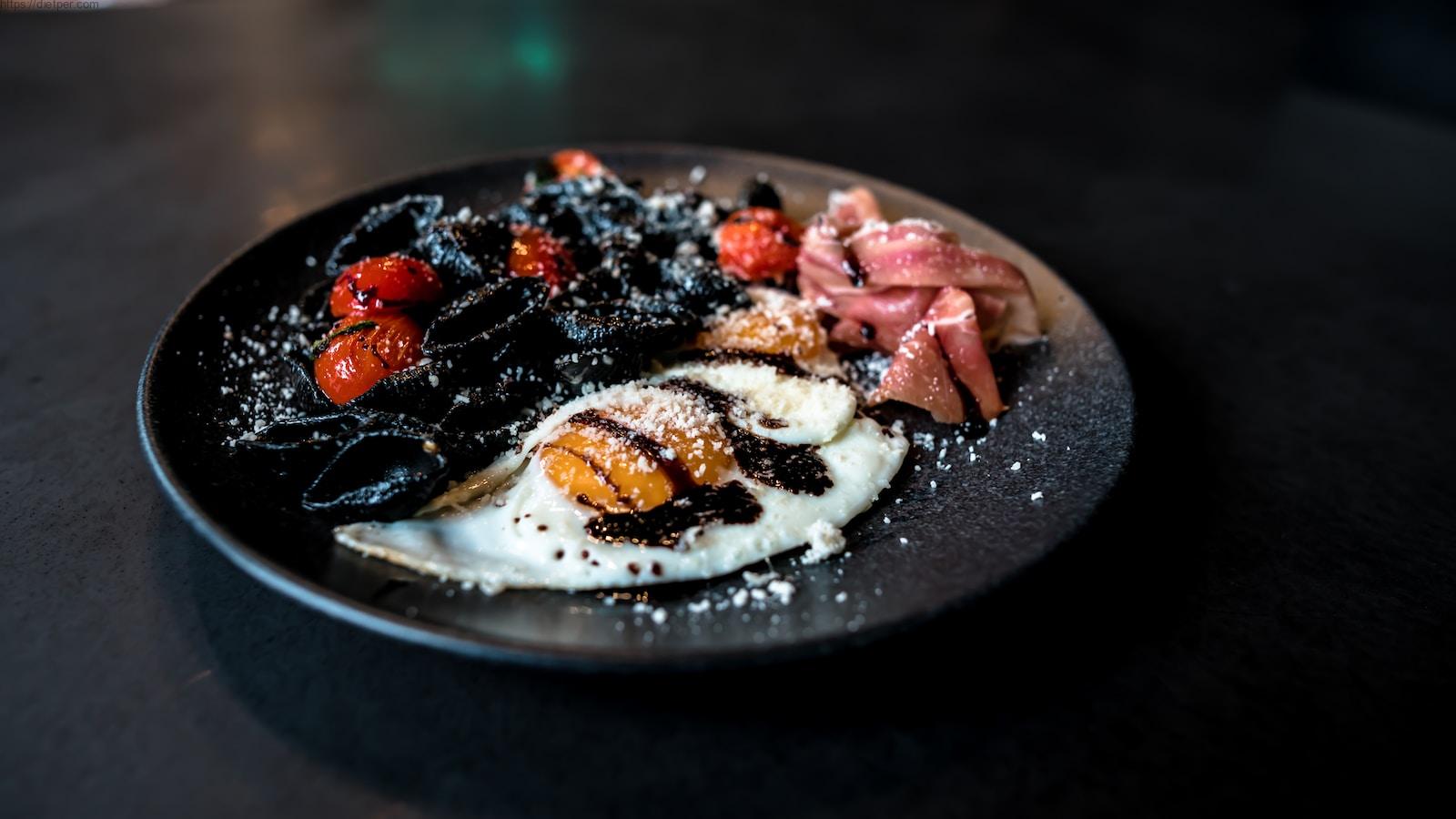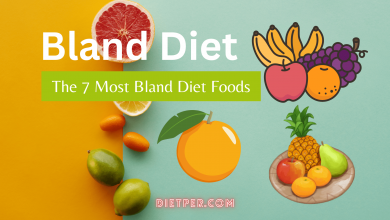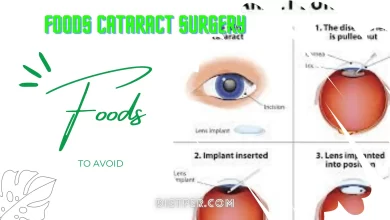15 Foods To Avoid with Gallbladder issues for a Healthy
Managing Gallbladder Health: 15 Foods to Avoid with Gallbladder Issues

15 foods to avoid with gallbladder issues:- Taking care of your gallbladder is essential for your overall digestive health. If you have been diagnosed with gallbladder issues, it’s important to pay close attention to your diet. Certain foods can exacerbate symptoms and potentially lead to painful gallbladder attacks. We will explore 15 common foods that should be avoided if you have gallbladder issues. By being aware of these foods and making conscious choices, you can promote healing and minimize discomfort.
What are the 15 foods to avoid with gallbladder issues?
If you’re experiencing gallbladder issues, it’s important to be mindful of the foods you consume. Certain foods can aggravate the symptoms and potentially worsen your condition. To help you navigate your dietary choices, here are 15 foods to avoid with gallbladder issues:
- Fried Foods
- Fatty Meats
- Full-Fat Dairy
- Spicy Foods
- Processed Foods
- Fast Food
- Eggs
- Chocolate
- Citrus Fruits
- Onions and Garlic
- Caffeine
- Carbonated Drinks
- Nuts and Seeds
- Margarine and Butter
- Ice Cream
15 foods to avoid with gallbladder issues
Navigating a gallbladder-friendly diet is crucial for individuals dealing with gallbladder issues. Here are expert tips to guide you through these specialized 15 foods to avoid with gallbladder issues:
1. Fried Foods
High Fat Content: Fried foods are typically submerged in oil, which makes them very high in fat. This excess fat can overwork the gallbladder, leading to discomfort and potential gallstone formation.
Trans Fats: Many fried foods are prepared using oils rich in trans fats, which are known to contribute to inflammation and may worsen gallbladder symptoms.
Digestive Strain: The gallbladder secretes bile to aid in the digestion of fats. When you consume fried foods, the gallbladder has to work harder to process the excessive fat content, possibly causing pain and discomfort.
2. Fatty Meats
Saturated Fat: Fatty meats like beef, pork, and lamb contain high levels of saturated fats. These fats can stimulate the gallbladder to release more bile, potentially leading to discomfort.
Difficult Digestion: Saturated fats are harder to digest, and the gallbladder may struggle to keep up with the demand for bile, resulting in digestive issues.
3. Full-fat Dairy
Saturated Fats: Full-fat dairy products, including whole milk, cream, and cheese, are rich in saturated fats that can strain the gallbladder.
Cholesterol: These products also contain cholesterol, which can contribute to gallstone formation over time.
4. Spicy Foods
Irritation: Spicy foods, particularly hot peppers and strong spices, can irritate the gallbladder lining and cause discomfort.
Increased Bile Release: Spicy foods may trigger the gallbladder to release more bile, which can lead to pain or cramping, especially in individuals with gallbladder issues.
5. Processed Foods
Trans Fats: Processed foods often contain trans fats, which are harmful fats linked to inflammation and gallbladder problems.
High Sodium: Processed foods are typically high in sodium, which can contribute to water retention and bloating, potentially exacerbating gallbladder symptoms.
Low Fiber: Many processed foods lack dietary fiber, which is essential for digestive health and may help prevent gallstones.
6. Fast Food
Excess Fat and Sodium: Fast food items are notorious for being high in both unhealthy fats and salt. This combination can put a significant strain on the gallbladder.
Processed Ingredients: Fast food often contains processed and low-nutrient ingredients that do not support gallbladder health or overall well-being.
Weight Gain: Frequent consumption of fast food can lead to weight gain, which is a risk factor for gallstones and gallbladder issues.
7. Eggs
High Cholesterol: Egg yolks are rich in dietary cholesterol. While dietary cholesterol may not directly impact blood cholesterol levels in everyone, individuals with gallbladder issues may be more sensitive to cholesterol-rich foods.
Fat Content: Eggs, particularly the yolks, contain fat. This can trigger the gallbladder to release bile, potentially leading to discomfort in those with compromised gallbladders.
Personal Tolerance: The impact of eggs varies from person to person. Some individuals with gallbladder problems may experience discomfort after consuming whole eggs, while others may tolerate them better. Consider using egg whites if you experience issues with yolks.
8. Chocolate
High-Fat Content: Chocolate, especially dark chocolate and certain cocoa-based products, is relatively high in fat. Excessive fat intake can strain the gallbladder, leading to discomfort.
Stimulant Effect: Chocolate contains substances like theobromine and caffeine, which can stimulate the gallbladder and potentially exacerbate gallbladder symptoms.
9. Citrus Fruits
Acidity: Citrus fruits are acidic, which may irritate the gallbladder lining and lead to discomfort in some individuals.
Stimulate Bile: Citrus fruits, particularly lemon, are known to stimulate bile production. While this can aid in digestion for some, it may cause pain or cramping in individuals with gallbladder issues.
10. Onions and Garlic
Sulfur Compounds: Onions and garlic contain sulfur compounds that can be difficult to digest and may worsen gallbladder discomfort in some individuals.
Digestive Strain: These foods can put additional stress on the gallbladder, especially when consumed in large quantities or when raw.
11. Caffeine
Stimulant Effect: Caffeine is a natural stimulant that can increase the production of digestive juices, including bile. For individuals with gallbladder issues, excess stimulation can lead to discomfort.
Hydration: Caffeine can have a mild diuretic effect, potentially leading to dehydration. Maintaining adequate hydration is crucial for gallbladder health.
12. Carbonated Drinks
Gas and Bloating: Carbonated beverages, including soda and sparkling water, can introduce excess gas into the digestive system. This can lead to bloating and discomfort, which can exacerbate gallbladder symptoms.
Pressure on Gallbladder: The carbonation in these drinks can create internal pressure, potentially causing discomfort for individuals with gallbladder issues.
Empty Calories: Many carbonated drinks contain added sugars and offer little nutritional value. Excessive sugar intake can lead to weight gain, which is a risk factor for gallstones and gallbladder problems.
13. Nuts and Seeds
High in Fat: Nuts and seeds are nutrient-dense and provide healthy fats, but they can also be high in total fat content. For individuals with gallbladder issues, especially those prone to gallstone formation, excessive dietary fat can be problematic.
Risk of Blockage: Larger nuts or poorly chewed seeds can block the bile duct, causing intense pain. Chewing them thoroughly or choosing nut and seed butter may be a better option.
14. Margarine and Butter
Saturated Fat: Margarine and butter are both high in saturated fats. These fats can stimulate the gallbladder to release bile, which may lead to discomfort, particularly for individuals with gallbladder issues.
Trans Fats (in Margarine): Some margarine varieties contain trans fats, which are known to contribute to inflammation and may worsen gallbladder symptoms.
Alternatives: Consider using olive oil or avocado as healthier alternatives for cooking or spreading.
15. Ice Cream
High in Saturated Fat: Full-fat ice cream is laden with saturated fat, which can overstimulate the gallbladder and lead to discomfort.
Sugar Content: Many ice creams are also high in sugar, which can contribute to weight gain and an increased risk of gallbladder issues.
Lactose (in Dairy-Based Ice Creams): Some individuals with gallbladder problems may also have difficulty digesting lactose, a sugar found in dairy-based ice cream, which can lead to digestive issues.
By implementing these dietary adjustments and being mindful of your food choices, you can effectively manage gallbladder issues and enhance your overall well-being while following the guidance provided in the comprehensive list of “15 foods to avoid with gallbladder issues.”
What are the High-fat foods and their impact on gallbladder health?
High-fat foods can significantly impact gallbladder health. The gallbladder’s role in digesting fats by releasing bile is vital. However, when gallbladder problems like gallstones or inflammation occur, processing high-fat foods becomes challenging.
Fried foods, fatty meats, full-fat dairy, and rich desserts can trigger symptoms and worsen existing gallbladder issues. These foods demand more bile for digestion, straining the already compromised gallbladder, leading to intense pain and discomfort. Avoiding these foods is crucial for gallbladder health, as highlighted in the comprehensive list of “15 foods to avoid with gallbladder issues.”
Instead, opt for a low-fat diet with lean proteins, fruits, vegetables, and whole grains. These are easier for the gallbladder to process and can alleviate gallbladder problem symptoms. Incorporate healthier fats like those in avocados, nuts, and olive oil to provide essential nutrients without overburdening the gallbladder. Prioritize your gallbladder’s health and well-being with informed dietary choices.
Few Popular Article
- Steer Clear: 11 High Cholesterol Drinks to Avoid
- Unveiling: Top 9 Foods to Avoid While Intermittent Fasting
- A Delicious Bland Diet Menu for Gastritis Relief in 2023
7 Tips for navigating a gallbladder-friendly diet
Limit Fat Intake: High-fat foods can trigger gallbladder attacks, so it’s vital to reduce consumption of greasy and fried foods. Opt for lean proteins and healthier fats like avocados and nuts.
Choose Low-Cholesterol Options: Gallstones can result from excess cholesterol in bile. Avoid high-cholesterol foods such as fatty meats, full-fat dairy, and processed items.
Incorporate Fiber-Rich Foods: Fiber aids digestion and prevents constipation, benefiting gallbladder health. Include fruits, veggies, whole grains, and legumes in your diet.
Stay Hydrated: Proper hydration is crucial for gallbladder function. Aim for at least eight glasses of water daily to support digestion.
Mind Caffeine and Alcohol: Both can stimulate the gallbladder and trigger symptoms. Limit coffee, tea, soda, and alcohol intake to minimize discomfort.
Avoid Spicy Foods: Spicy foods can irritate the digestive system, including the gallbladder. Minimize or avoid hot peppers, chili powder, and other spicy seasonings.
Say No to Processed Foods: Processed foods often contain unhealthy fats and additives that worsen gallbladder issues. Opt for whole, natural foods when possible.
Faqs – 15 foods to avoid with gallbladder issues
Why should I avoid fried foods if I have gallbladder issues?
Fried foods are high in fat and can overwork the gallbladder, potentially leading to discomfort and gallstone formation. Avoiding them can help alleviate gallbladder symptoms.
Can I consume chocolate in moderation with gallbladder issues?
While some individuals may tolerate chocolate in moderation, it’s generally high in fat and can stimulate the gallbladder, potentially causing discomfort. It’s advisable to limit chocolate consumption.
Why are citrus fruits on the list of foods to avoid with gallbladder problems?
Citrus fruits are acidic and may irritate the gallbladder lining, leading to discomfort. They can also stimulate bile production, which may cause pain or cramping in individuals with gallbladder issues.
Are there any alternatives to onions and garlic for flavoring meals when avoiding them due to gallbladder problems?
Yes, you can use milder seasonings like herbs, spices, or ginger to flavor your meals without irritating the gallbladder. Experiment with alternatives to find what works best for you.
How does caffeine affect gallbladder issues, and can I still consume it?
Caffeine can stimulate the gallbladder and potentially worsen gallbladder symptoms. It’s best to limit caffeine intake and opt for decaffeinated beverages to reduce the risk of discomfort.
Final Thought – 15 foods to avoid with gallbladder issues
Taking care of your gallbladder health is crucial, especially if you are dealing with gallbladder issues. By avoiding certain foods that can trigger discomfort or exacerbate symptoms, you can support your gallbladder’s functionality and overall well-being.
By being mindful of the foods you consume and making informed choices, you can alleviate discomfort, promote healing, and maintain optimal gallbladder health. Take control of your diet, prioritize your well-being, and savor a healthier, happier life with a well-nourished gallbladder. Explore the comprehensive list of “15 foods to avoid with gallbladder issues” to make informed dietary decisions for your gallbladder’s benefit.
Disclaimer
This blog post aims to empower you to make informed and health-conscious food choices. Your well-being is of paramount importance, and it’s essential to prioritize your health before embarking on any restrictive diets. Therefore, if you have any concerns, it is highly advisable to seek guidance from a healthcare professional or registered dietitian before making dietary changes.





Wow wonderful blog layout How long have you been blogging for you make blogging look easy The overall look of your site is great as well as the content
Thank you so much for your kind words! I’m glad you appreciate the blog layout. I’ve been blogging for a while, and I try to make the content both informative and visually appealing. It’s great to hear that you find the overall look of the site appealing. If you have any specific feedback or questions, feel free to share!
Wow, fantastic weblog structure! How lengthy have you
ever been running a blog for? you made blogging glance easy.
The total look of your website is fantastic, as well
as the content material!
Wow, marvelous weblog format! How lengthy have you been blogging for?
you make running a blog look easy. The whole glance of your site is fantastic, let alone
the content!
Thank you very much for your appreciation.